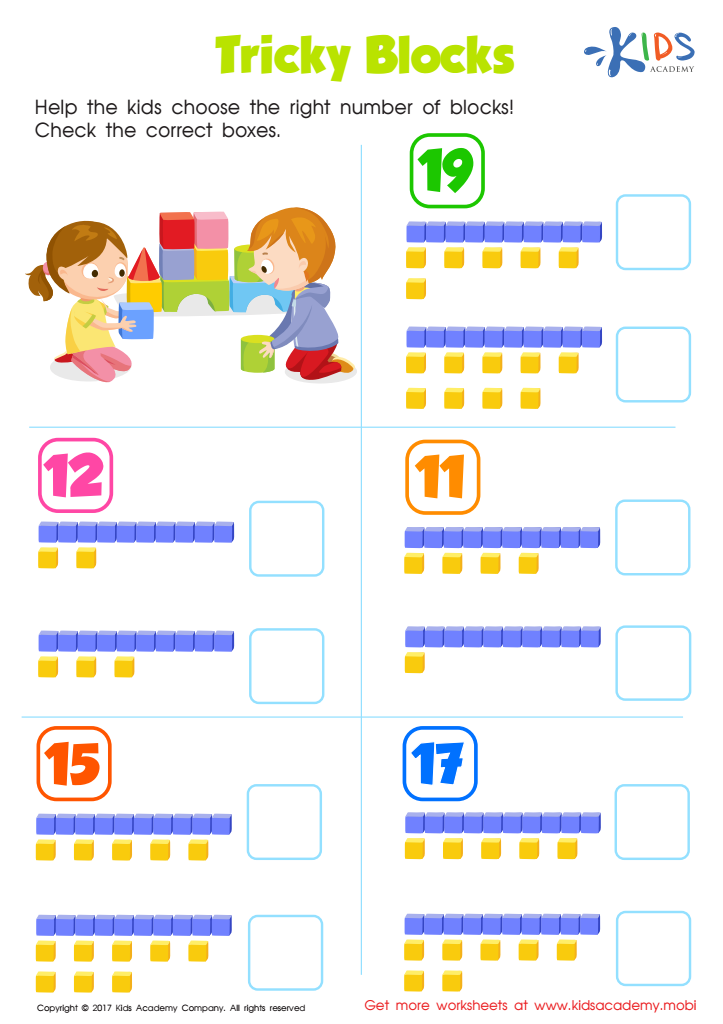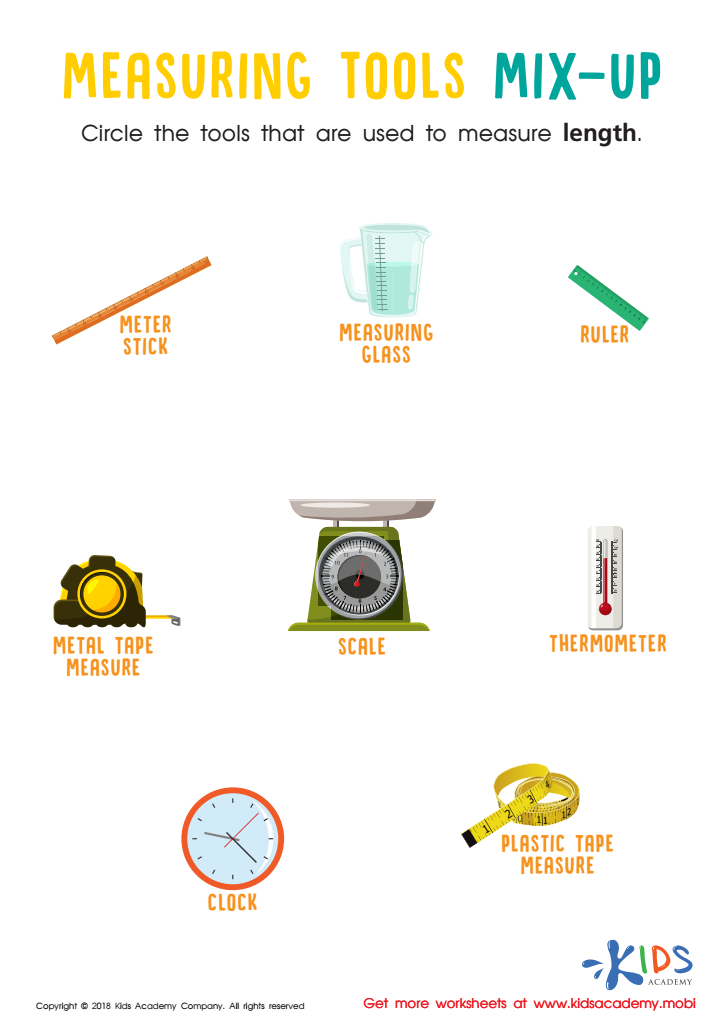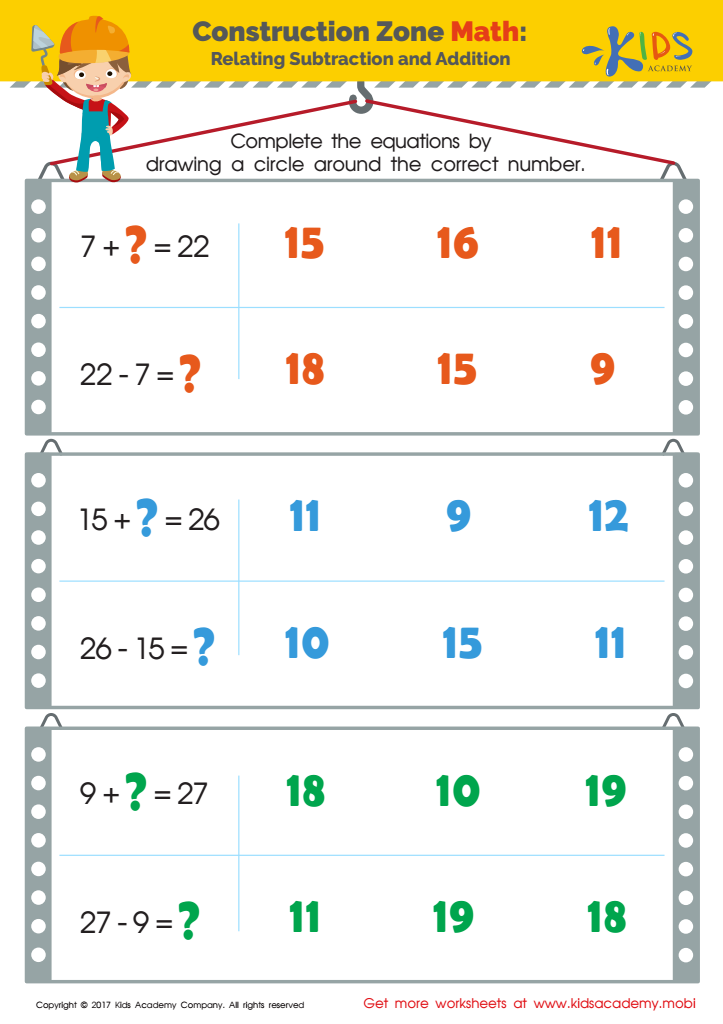Developing logical thinking Normal Math Worksheets for Ages 3-7
3 filtered results
-
From - To
Enhance your child's logical thinking skills with our thoughtfully designed Normal Math Worksheets, specifically tailored for ages 3 to 7. These engaging worksheets provide a fun and interactive way for young learners to explore foundational math concepts. By working through activities that promote reasoning and problem-solving, children will develop critical thinking abilities essential for future success. Each worksheet encourages creativity and exploration while reinforcing mathematical concepts in a gentle, age-appropriate manner. Watch as your child builds confidence and excitement for learning with our vibrant and accessible resources. Start nurturing a strong math foundation today with our captivating logical thinking worksheets!


Tricky Blocks Worksheet


Measuring Tools Mix–up Worksheet


Related Addition and Subtraction Facts Worksheet
Developing logical thinking through math for children aged 3 to 7 is crucial for several reasons. At this early age, children are like sponges, absorbing new concepts rapidly. Engaging them in logical thinking fosters critical problem-solving skills, which are fundamental not only in math but also in everyday life. When parents or teachers nurture these skills, they're helping children learn to solve problems systematically, analyze situations, and make reasoned decisions—abilities that will benefit them far beyond the classroom.
Additionally, a strong foundation in mathematical concepts enhances cognitive development. Activities involving patterns, sorting, and basic arithmetic introduce children to logical reasoning and spatial awareness, laying the groundwork for more advanced math as they grow.
Furthermore, developing logical thinking through math supports social-emotional growth. Children learn to work collaboratively during group activities, sharing their thought processes and learning from diverse perspectives. This collaboration fosters effective communication and builds confidence.
Lastly, emphasizing logical thinking during these formative years helps to cultivate a positive attitude toward learning. When children experience success in understanding and applying logical concepts, they are more likely to develop a love for math, viewing it as a fun challenge rather than a daunting subject. Investing in this early development is essential for parents and teachers aiming to set children up for future academic and personal success.

 Assign to My Students
Assign to My Students
















